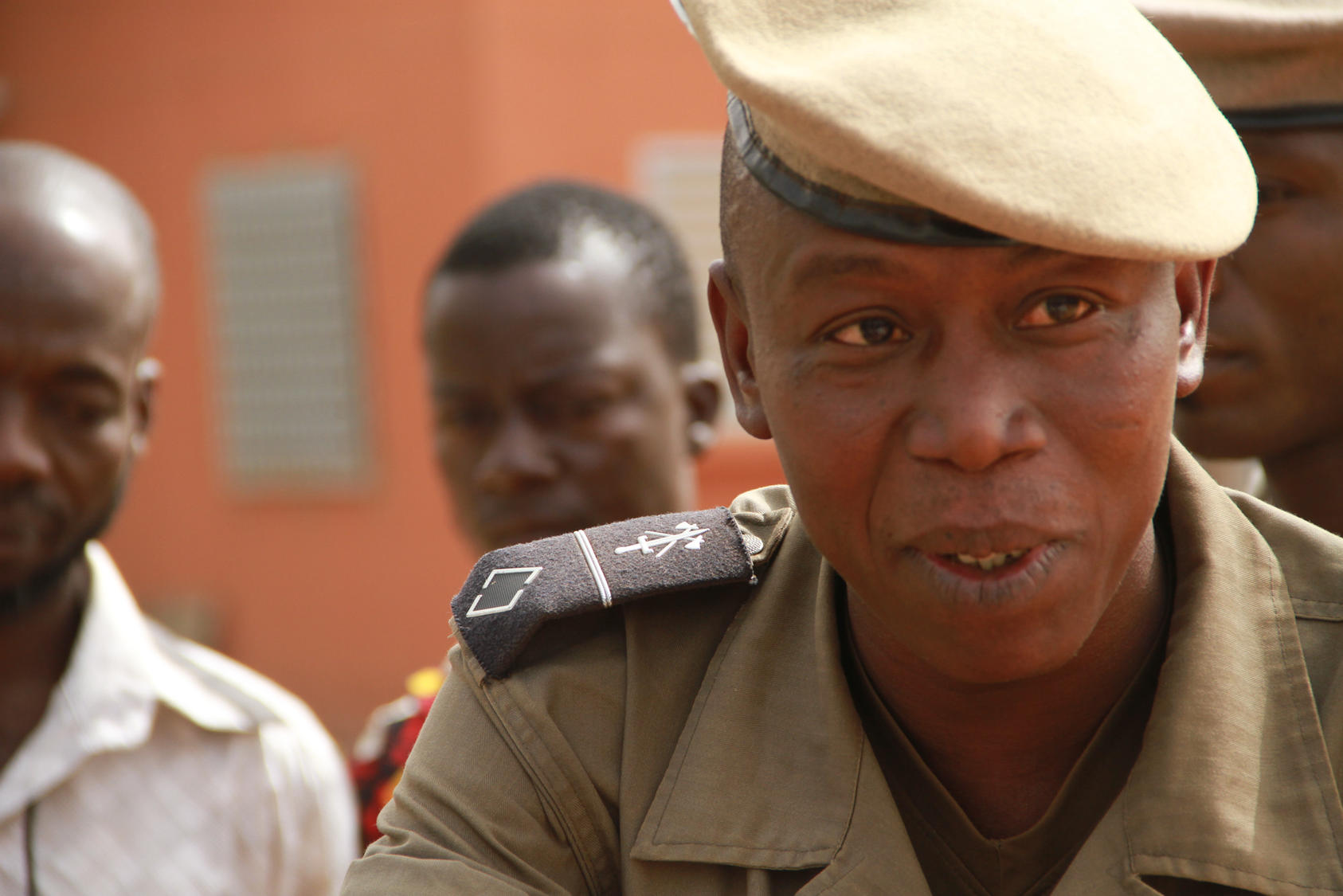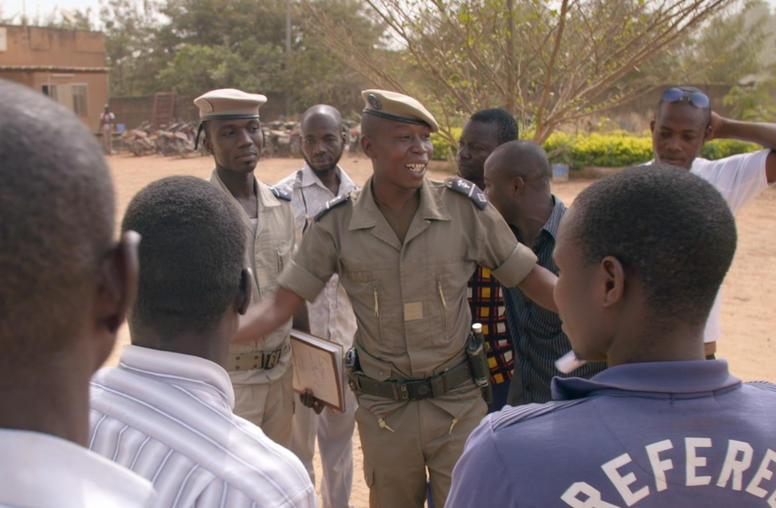When war, terrorism or communal bloodshed erupt in any country, the roots of the turmoil often must be found and healed at the community level. In such localities, government officials, police and community leaders are likely to mistrust each other—especially where centralized governments have built police and legal systems to defend the state more than to serve citizens. The breakdown in relations opens space for threats to local and global security, including violent extremists, organized crime, and the trafficking of arms, drugs or people. In countries of Africa, the Middle East and Asia, USIP has pioneered a method to bring state officials, community leaders and citizens together to work out the roots of their problems and cooperatively rebuild security.

The mix of problems that permit violence and extremism is different in each community. So USIP’s approach has been flexible across the 12 nations where it has been used. This method includes Justice and Security Dialogues, which the Institute has used in Nepal, Libya, Yemen, Tanzania, Iraq and Burma. It currently is focusing them in Tunisia, Nigeria and four nations of Africa’s Sahel region: Burkina Faso, Mali, Niger and Senegal.
After years of dictatorship and factional war in Iraq, citizens mistrusted the police, the courts and each other—and those divisions created opportunities for ISIS and other extremist groups. In Tunisia, years of authoritarian rule left impoverished communities fearful or angry at policing that has relied primarily on force. In Burkina Faso, local vigilante groups sometimes challenge the role of police as a security force. In many countries, local communities are burdened by hundreds or thousands of people driven from their own homes by warfare.
Solutions, Immediate and Long-Term
In any human conflict, the real root causes often are hidden and unrecognized. So as a first step, USIP teams, working with local partners, gather representatives of all the relevant groups in a community for dialogues with police to collectively identify what has gone wrong. The dialogues generally last for a year or longer, and emphasize openness and transparency. They lead the community toward practical, concrete solutions to the security problems that trouble the daily lives of community members.
The dialogue process achieve not only those immediate solutions, it builds a lasting foundation for trust and future cooperation among citizens, police and other state institutions. And, because USIP mentors and supports local civic groups as partners in the process, each dialogue also strengthens the host country’s capacity to resolve its own problems peacefully in the future. Each dialogue also generates insights into the systemic problems of countries facing violence. These insights can be used to improve local, national and international policies. Evaluations of the dialogues have found that they reduce violence. After USIP held Justice and Security Dialogues in an area of Nepal following that country’s decade of civil war, local incidents of violence decreased by 80 percent. The changes that the dialogues brought to police and government operations were sustainable, still being implemented as much as 10 years later.
Achievements of Justice and Security Dialogues include these examples:
- In Nigeria, preliminary consultations to prepare for a full dialogue improved relations between police and residents in the city of Jos. Citizens in a neighborhood of the city had burned down the police station and forced police to stay out of their community. The preliminary dialogues yielded agreements in which community members donated land for a new station, and police and residents cooperated to get it built and arrange for police to return.
- In Iraq, dialogues reduced sectarian tensions and inhibited violence in Baghdad, Basra, Kirkuk and Karbala. The dialogues, in 2013-2016, helped establish crisis management plans in each of the four provinces to better manage humanitarian crises arising from Iraq’s war with the ISIS militant group.
- In the Sahel region, dialogues are reducing mistrust between communities and police that at times has been exploited by religious extremists. In Burkina Faso, a dialogue underway in 2017 has defused tensions between police and once-mistrustful members of a local vigilante group who have begun cooperating with police in controlling crime. In Dakar, Senegal, the project has improved the sharing of information between community members and police.








